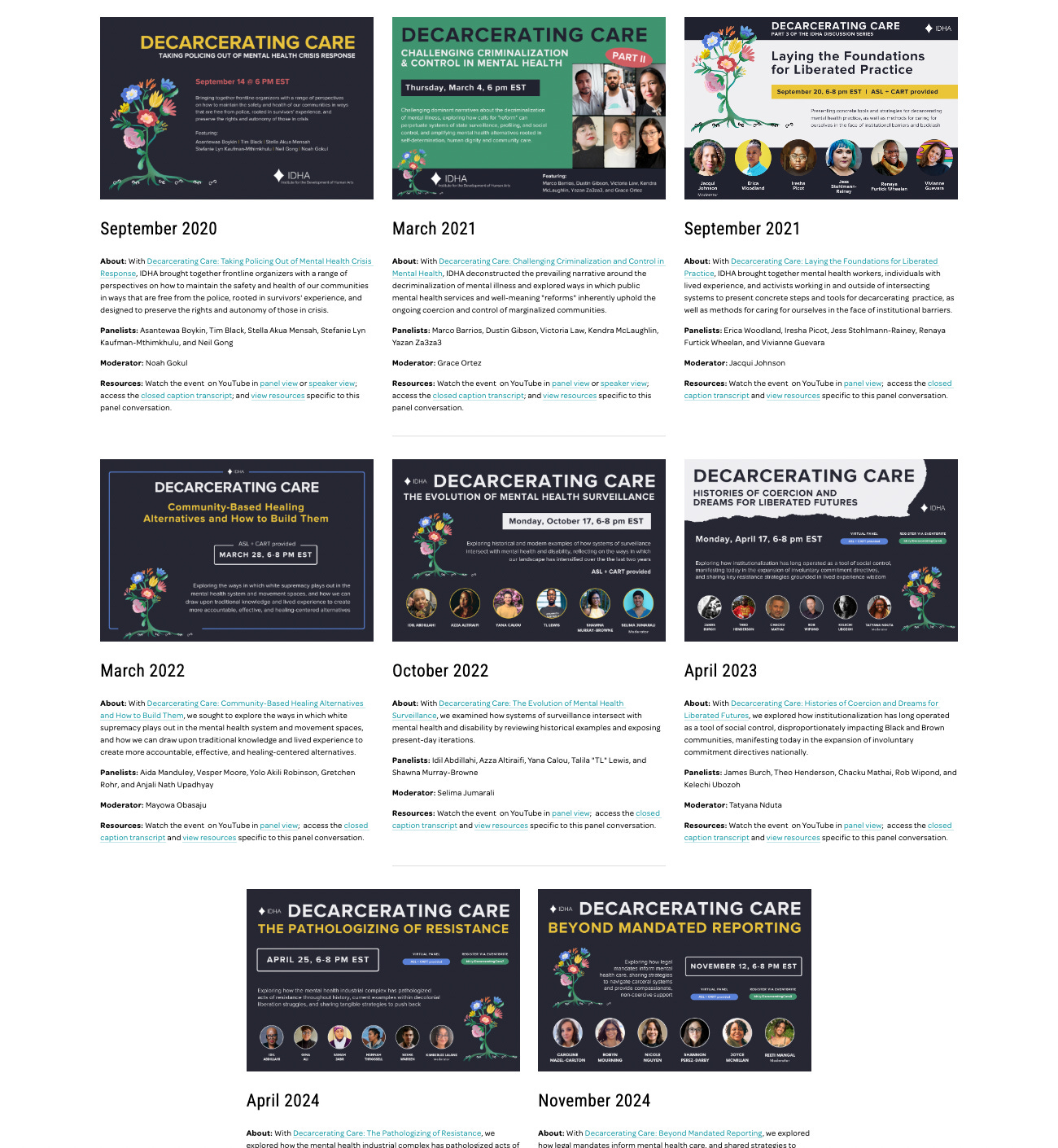Decarcerating Care: Strategy, Struggle & Sustained Commitment
Join IDHA on May 5th for a Powerful Cross-Movement Space
Five years ago, in the early months of the pandemic—when the Institute for the Development of Human Arts (IDHA) was still in its more embryonic and urgent stage—Bedlam, a documentary directed by a psychiatrist, aired on PBS. This spring, IDHA is hosting the ninth installment of our Decarcerating Care series: Strategy, Struggle & Sustained Commitment—a direct descendant of the conversations that film helped ignite.
Bedlam offered a bleak, intimate look inside emergency rooms, psychiatric wards, and jails in Los Angeles, tracing the lives of individuals caught in a collapsing mental health system. Framed through the lens of a clinician whose own family had been touched by psychiatric crisis, the film drew national attention to the connections between poverty, incarceration, and so-called serious mental illness. And yet, for many of us in the psychiatric survivor and mad rights movements, the film landed as deeply troubling: once again, a narrative about our lives told about us, but not with us—featuring scenes of people in crisis, restrained or medicated, without real context, history, or alternatives. It was one of the moments that galvanized our commitment to push for a deeper conversation—one not just about mental illness, but about systems of care, autonomy, and justice.
Out of that initial response—the letters, the late-night conversations, the feeling of being left out of the national narrative—Decarcerating Care was born. Not as a single event, but as an ongoing commitment to bring together the voices that have too often been silenced: people with lived experience of psychiatric incarceration, survivors of forced treatment, families in pain, and healers working both inside and outside the system. Over time, Decarcerating Care evolved from a reaction into a gathering place—a forum to reimagine what care could look like when it’s rooted in dignity, rights, and community.
That early momentum planted the seeds for something bigger. Over the last five years, Decarcerating Care has grown into a powerful, cross-movement space—bringing together clinicians, peer advocates, organizers, and scholars to examine the entanglements of mental health and state violence. And now, in 2025, as authoritarian policies expand under the guise of public safety and care, we return to the circle with Strategy, Struggle & Sustained Commitment. This new panel is a continuation and a deepening—an invitation to take stock of what we’ve learned, what remains urgent, and how we commit to the long road ahead. I’m honored to support it and hope you’ll join us.
Also check out the latest Icarus Project Archive post:
“In a time when authoritarianism is rising all over the world—when fascism is no longer a distant threat but something unfolding in real time—we desperately need movements that are emotionally intelligent, strategically flexible, and spiritually grounded. We need spaces that can hold people as they grow, not cast them out for failing to arrive fully formed. But too often, the left has turned inward, purging itself instead of building power. We’ve lost too many people—not just to suicide, but to burnout, exile, and disillusionment.”







